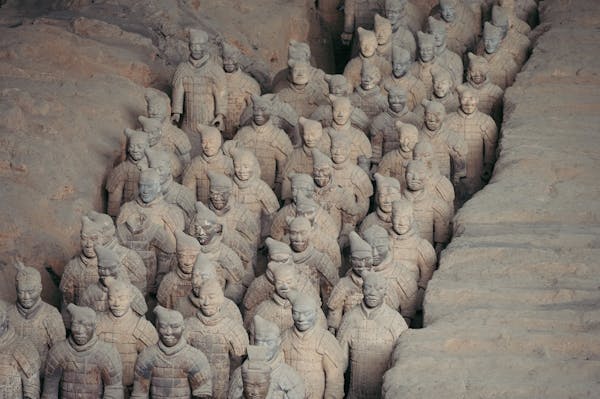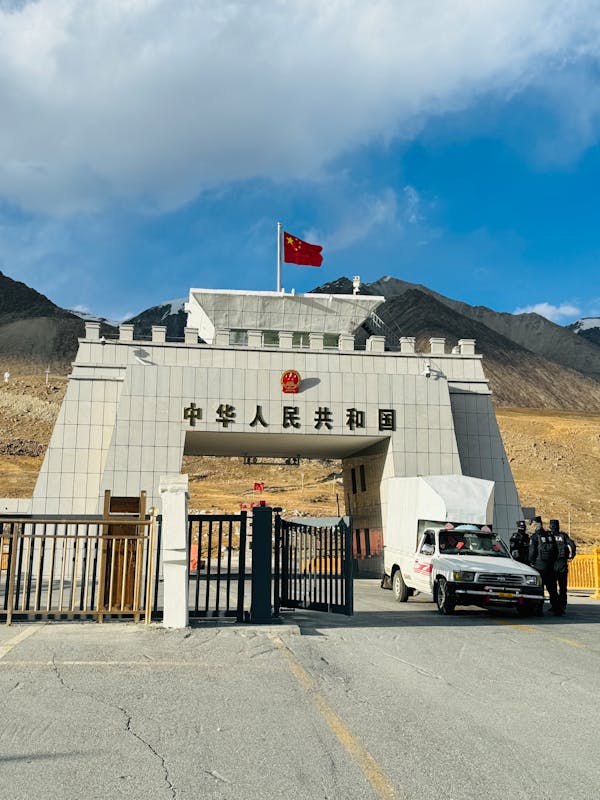China-Taiwan relations are among the most complex geopolitical stories continuing to unfold in East Asia. It is purported that historic development, ongoing tensions, and possible ways of resolving them may be the key to wider implications for regional stability and the great politics of the world.
This paper attempts to reflect on the evolution of the relationship between China and Taiwan, its current status, and its implications for international stakeholders.
This paper attempts to reflect on the evolution of the relationship between China and Taiwan, its current status, and its implications for international stakeholders.
Historical Background

Relations between China and Taiwan emanate from the Chinese Civil War of 1927-1949, which saw the Nationalist government move to Taiwan subsequent to the victory of the Communists in mainland China.
The People's Republic of China was instituted in the year 1949, with Taiwan remaining another political unit because the Republic of China was running it. The PRC since then considered Taiwan to be part of their territory, yet the government of Taiwan has resisted this claim.
It is this dispute which has been the source of a long-standing tension within the political environment and thus further influenced the identity of Taiwan.
The People's Republic of China was instituted in the year 1949, with Taiwan remaining another political unit because the Republic of China was running it. The PRC since then considered Taiwan to be part of their territory, yet the government of Taiwan has resisted this claim.
It is this dispute which has been the source of a long-standing tension within the political environment and thus further influenced the identity of Taiwan.
Status Quo
Recently, it has been undergoing more tension with the present administration of Taiwan, especially in the past years. The PRC is intensifying military operations around Taiwan. This increases the red flags concerning the possibility of war.
The United States also continues to reaffirm its relationship with Taiwan through arms sales and diplomatic support, thus complicating a situation that has already been tense. Taiwan's aspiration for international recognition and participation in global organizations contrasts strongly with China's effort at isolating it diplomatically.
The United States also continues to reaffirm its relationship with Taiwan through arms sales and diplomatic support, thus complicating a situation that has already been tense. Taiwan's aspiration for international recognition and participation in global organizations contrasts strongly with China's effort at isolating it diplomatically.
Economic Interdependence

Not withstanding all political tensions, there were strong economic ties between China and Taiwan. Latter played an important role in the global supply chains, especially concerning semiconductors, one of the most critical items in technology production.
Many Taiwanese companies operate in mainland China and add to mutual economic interests. The interdependence thus gives rise to a dilemma: this economic cooperation perhaps brings about stability, yet at the same time, it complicates matters politically as both sides navigate aspirations and concerns.
Many Taiwanese companies operate in mainland China and add to mutual economic interests. The interdependence thus gives rise to a dilemma: this economic cooperation perhaps brings about stability, yet at the same time, it complicates matters politically as both sides navigate aspirations and concerns.
International Stakeholders' Role
The United States remains the most critical factor in the China-Taiwan relationship. Conventional U.S. policy has been guided by a "One China" principle, whereby Beijing is recognized but at the same time is helped along by Taiwan in the maintenance of self-defense.
A more recent development, represented by the Taiwan Travel Act and increased military support to Taiwan, marks the shifting in American policy toward an increasingly forceful stance vis-à-vis Taiwan's defense. This meets with Chinese disapproval, which perceives these stances as provocations.
A more recent development, represented by the Taiwan Travel Act and increased military support to Taiwan, marks the shifting in American policy toward an increasingly forceful stance vis-à-vis Taiwan's defense. This meets with Chinese disapproval, which perceives these stances as provocations.
Other countries in the Asia-Pacific, such as Japan and Australia, are watching with equal closeness. Japan has articulated its unease, especially in terms of regional stability, since any conflict involving Taiwan would cut into vital supply chains and, therefore, affect its security.
So far, the Quad alliance of the U.S., Japan, Australia, and India has stressed the need for a free and open Indo-Pacific as a proxy expression to support Taiwan's position.
So far, the Quad alliance of the U.S., Japan, Australia, and India has stressed the need for a free and open Indo-Pacific as a proxy expression to support Taiwan's position.
Prospects for the Future
The future of the China-Taiwan relationship is not a sure thing to go in any particular direction. Scenarios range from peaceful coexistence to a potential conflict. The challenge diplomatically for both sides is to seek common ground while treading their way through domestic pressures. The rise in nationalist sentiments in China and Taiwan further complicates this situation as finding compromises becomes increasingly difficult.
Consequently, it follows that the tightrope which Taiwan must balance between asserting its identity and furthering economic relations with the mainland is a difficult act to maintain. All this Taiwan's leaders have to juggle while appealing to their constituents, who could equally hold different views regarding unification versus independence.

This Means that,
The China-Taiwan relationship aptly sums up the struggle between sovereignty and identity that has been confronting an increasingly multipolar world. This is a relationship that will continue to be fraught with complications as international stakeholders remain involved in the region-a process that will need careful diplomacy and strategic foresight.
The easing of tensions is not only important for the parties themselves but also for maintaining stability in the Asia-Pacific. Whoever is interested in world geopolitics has to understand the intricacies of the relations between China and Taiwan, as such dynamics go beyond the area of East Asia.
The easing of tensions is not only important for the parties themselves but also for maintaining stability in the Asia-Pacific. Whoever is interested in world geopolitics has to understand the intricacies of the relations between China and Taiwan, as such dynamics go beyond the area of East Asia.







Comments(0)